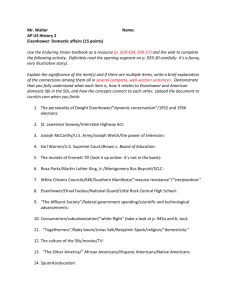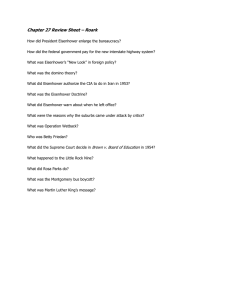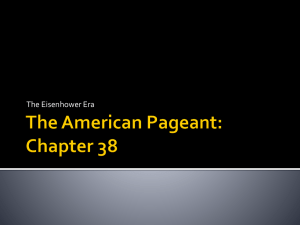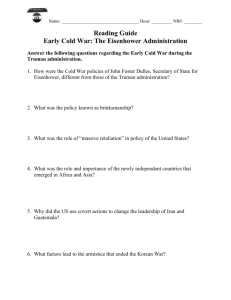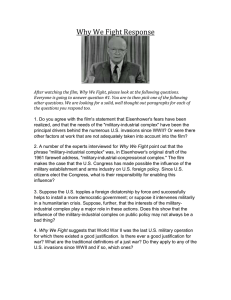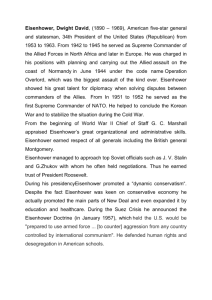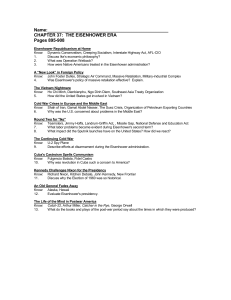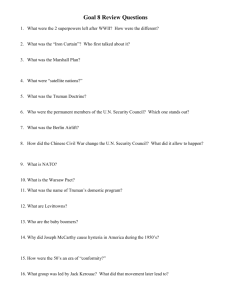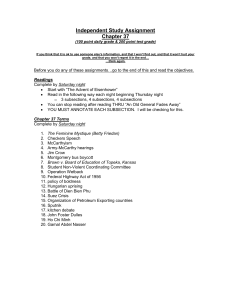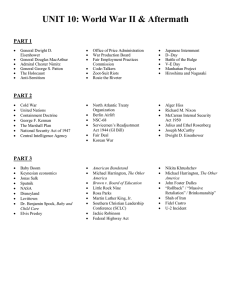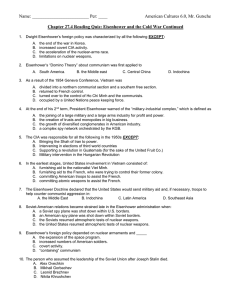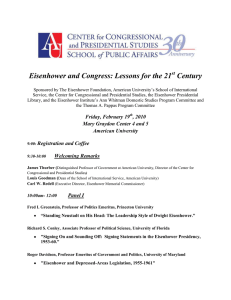Chapter 26 GQ-ID
advertisement
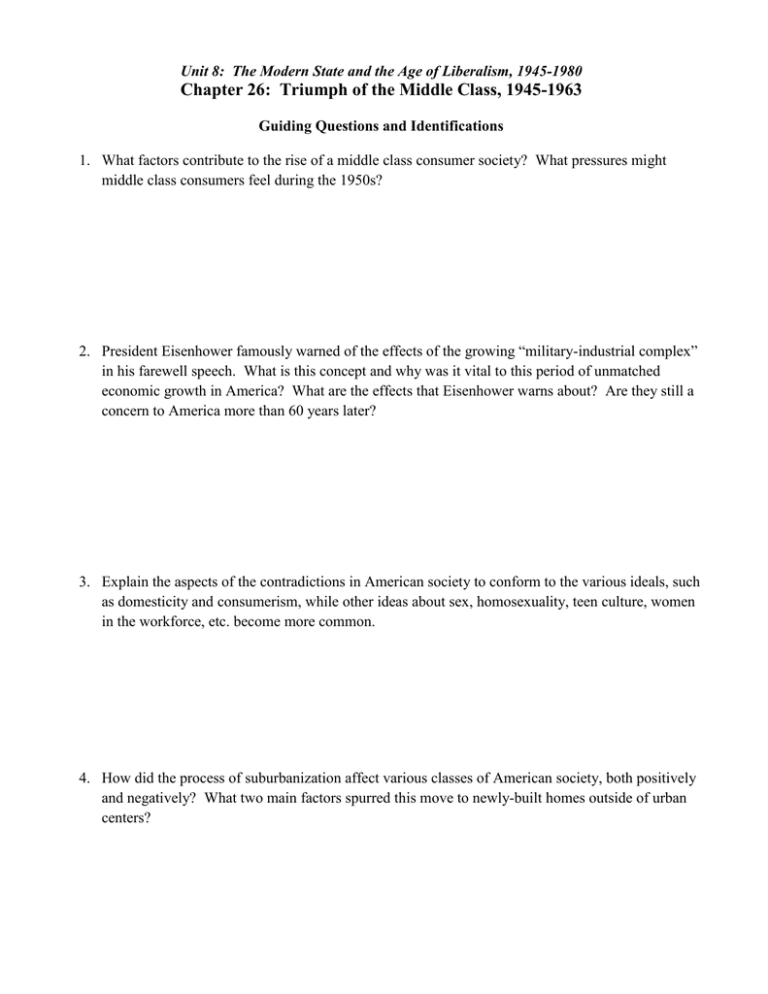
Unit 8: The Modern State and the Age of Liberalism, 1945-1980 Chapter 26: Triumph of the Middle Class, 1945-1963 Guiding Questions and Identifications 1. What factors contribute to the rise of a middle class consumer society? What pressures might middle class consumers feel during the 1950s? 2. President Eisenhower famously warned of the effects of the growing “military-industrial complex” in his farewell speech. What is this concept and why was it vital to this period of unmatched economic growth in America? What are the effects that Eisenhower warns about? Are they still a concern to America more than 60 years later? 3. Explain the aspects of the contradictions in American society to conform to the various ideals, such as domesticity and consumerism, while other ideas about sex, homosexuality, teen culture, women in the workforce, etc. become more common. 4. How did the process of suburbanization affect various classes of American society, both positively and negatively? What two main factors spurred this move to newly-built homes outside of urban centers? Identifications: 26.1 Postwar Prosperity and the Affluent Society kitchen debate Bretton Woods World Bank International Monetary Fund Dwight D. Eisenhower military-industrial complex Sputnik National Defense Education Act The Affluent Society The Other America Veterans Administration collective bargaining teenager Beats (not the over-priced headphones, you product of the modern consumer society) Miles Davis Allen Ginsberg Jack Kerouac Billy Graham 26.2 The American Family in the Era of Containment baby boom Dr. Benjamin Spock 26.3 A Suburban Nation Shelley v. Kraemer Two factors spurring the move to the suburbs National Interstate and Defense Highways Act William J. Leavitt Sunbelt Kerner Commission
